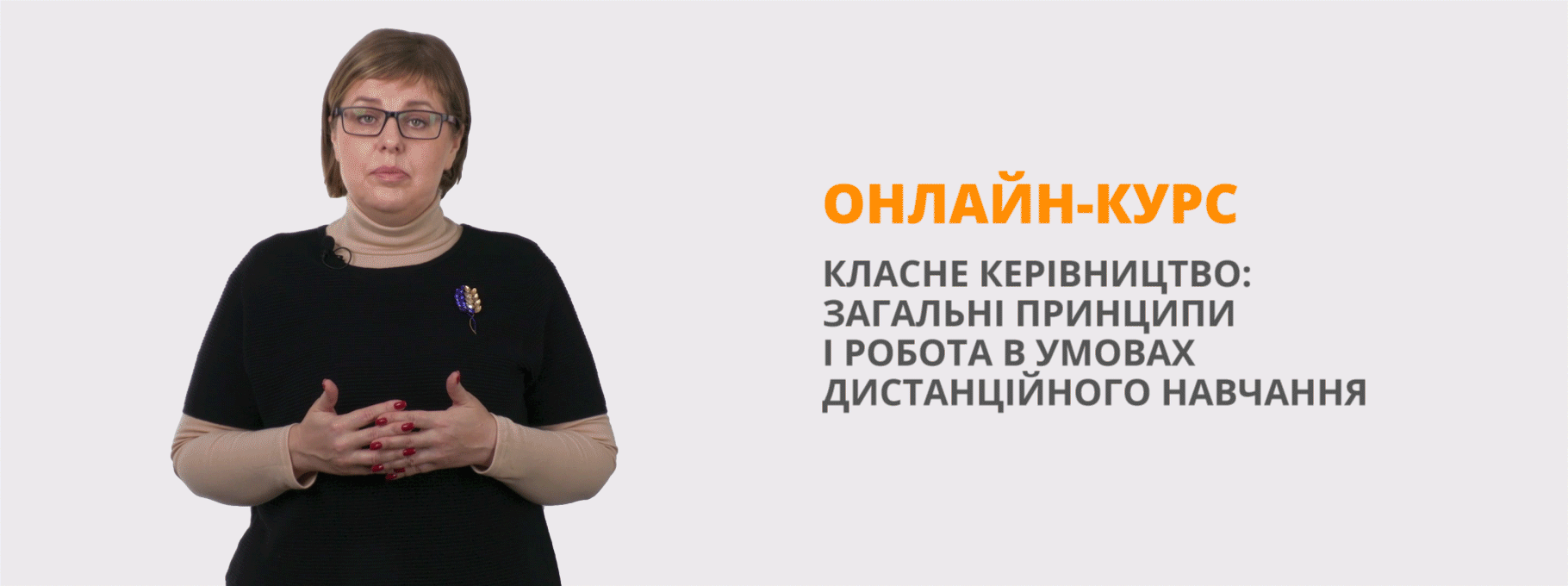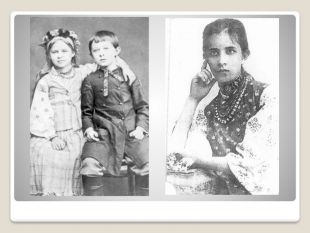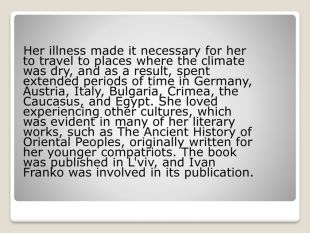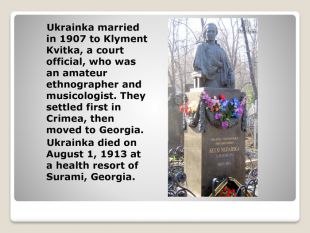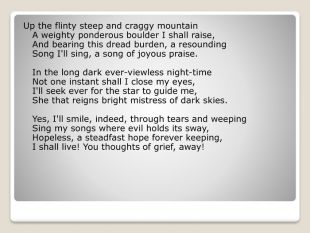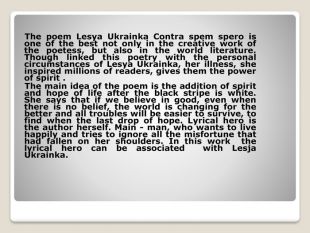Presentation "Lesya Ukrainka "
Про матеріал
Дана презентація допоможе вчителям англійської мови при проведенні позакласного заходу з англійської мови про творчість української поетеси Лесі Українки . Перегляд файлу
Зміст слайдів
ppt
До підручника
Англійська мова (9-й рік навчання, рівень стандарту) 10 клас (Карпюк О.Д.)
Оцінка розробки


Безкоштовний сертифікат
про публікацію авторської розробки
про публікацію авторської розробки
Щоб отримати, додайте розробку
Додати розробку
